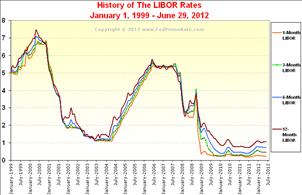

It has not made much of a splash across the world newspapers, but some reports by former banker-turned journalist Thomas Pascoe said that the Labour government in Britain colluded with banks on the price of gold.
A majority of speculation between 1999 and 2002 centred on Chancellor of the Exchequer Gordon Brown’s lack of economic sense.
British gold was sold at a rock bottom price of about $270 per ounce.
Mr Pascoe has now found that the policy of selling gold at auction and publically announcing the sale was designed to purposefully reduce the price.
Goldman Sachs and other banks were playing the carry trade.
In short, a bank borrows gold, sells it to someone else, invests the money made from gold in stocks, waits, sells the stocks at a profit and buys back the gold.
The bank then gives the gold back to the lender and keeps the profit.
The price of gold was too high around this time and banks were in danger of massive losses when forced to buy back the gold and give it returned to the lender. Mr Brown’s decision to sell cheap, saved many banks for going to the wall around the new millennium.
It turned out that former BBC Chairman Gavyn Davies worked for Goldman Sachs and his wife, Sue Nye ran Mr Brown’s office.
Here you have a bank, a chancellor and a media corporation all together at the same time and place. Was it a coincidence? Many people are now wondering where other collusions have occurred.
The Political Class
Has the political class failed the people of the world?
As always, links are hard to prove and easy to place into the ‘conspiracy theory’ category. Yet, it has become obvious that while capitalism may be the best economic system, it is not the best one for the society and it is not a beast that can be left unmuzzled.
The next few decades will be defined on how the public reconcile their relationship with politics, how they regulate the actions of politicians and how the activities of businesses are defined.
The ethics of business and the social responsibility of businesses towards employees and customers alike may well be put ahead of the profit motive as the key defining modus operandi of capitalism.
If not, expect the crisis to wear on and on.
Layla Horton is the nom de plume of a freelance business and finance writer with a keen interest in how governments influence or hinder private sector business success. She began her career in banking, where she was initially selling a host of banking products including current accounts and unoccupied home insurance






